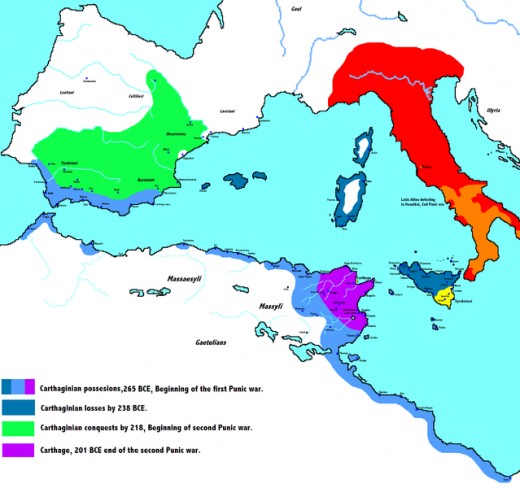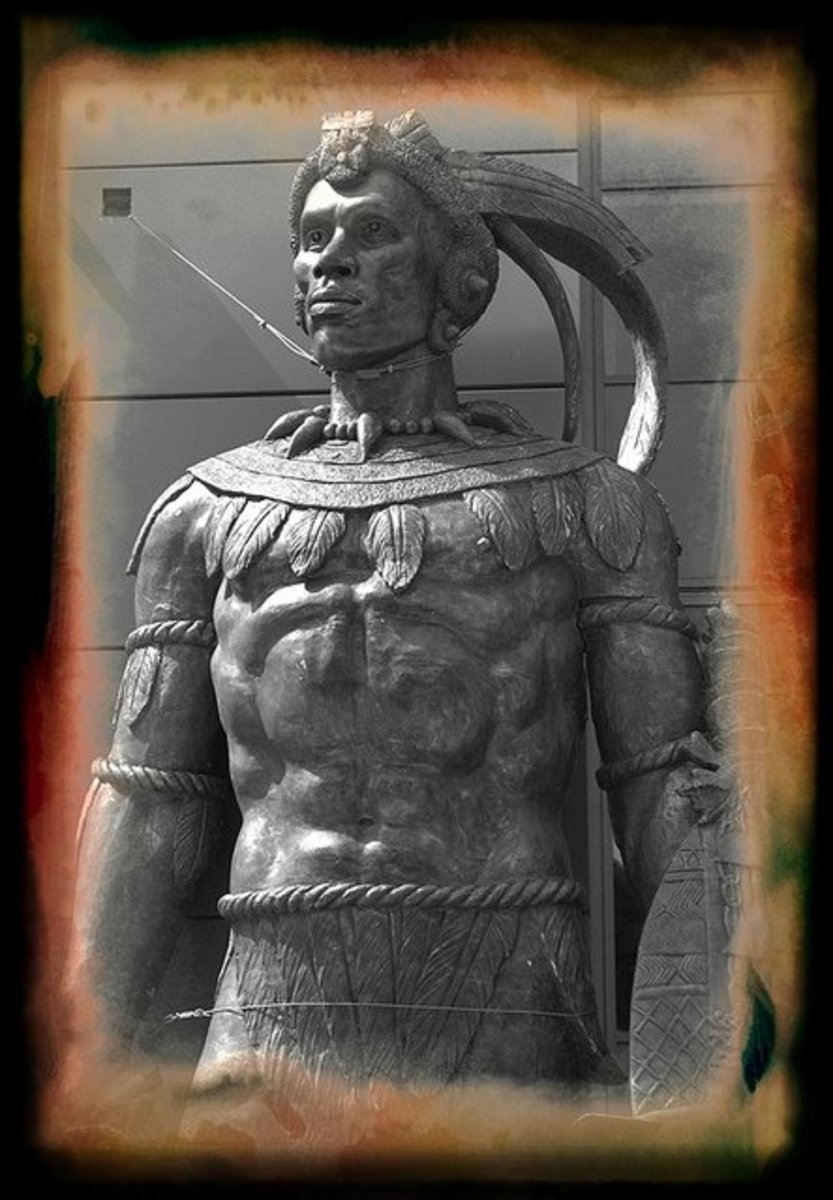Carthage
Carthage was an ancient city in North Africa in the vicinity of modern Tunis. It was founded before 800 B.C. by Phoenician colonists from Tyre. According to legend the city was founded by Dido, who ruled as its first queen. Carthage nourished for almost seven centuries as one of the ancient world's wealthiest and most powerful communities. It eventually was defeated and razed by Rome, but it was later refounded and became a cultural and religious center.
Early History
When Rome was a small city-state, Carthage was the dominant power in the western Mediterranean. Its geographical location was particularly conducive to the development of agriculture, commerce, and industry, at which the Carthaginians excelled. By the 6th century B.C., the city controlled the entire North African coast from the Atlantic Ocean to the western border of Egypt. It also controlled the southern part of Spain, the islands of Sardinia, Corsica, and Malta, and the western part of Sicily. Its tremendous fleet ruled the western Mediterranean Sea. By the 3rd century B.C., Carthage had grown into a large city. Visitors were amazed at its wealth, which was exhibited by numerous statues and marble temples with gold and silver pillars. The palaces, villas, vineyards, and orchards of the wealthy covered the countryside. Its treasury was constantly replenished by silver and copper from Spain and ivory from Africa.
Government
Carthage was ruled by a plutocracy, or government by the wealthy. The wealth of the city was held by a few rich and influential families, and it was they who controlled the council and the senate. Two suffetes, or chief magistrates, were elected annually, but they had little power. Dissension among the prosperous families often hampered foreign and domestic policies. The wealthy persons who ruled Carthage used much of their money to build ships and to hire mercenary troops. They believed that the riches of the city would suffice to prevent an attack by its enemies.
Punic Wars
A small incident in 264 B.C., involving Carthaginian and Roman aid to Messana in Sicily, led to three destructive conflicts between Carthage and Rome known as the Punic Wars. They lasted for more than a century and resulted in complete victory for the Romans.

Reestablishment
After the destruction of Carthage in 146 B.C., Gaius Gracchus attempted to establish a colony called Junonia on the site of Carthage in 122 B.C., but failed. However, Carthage was reestablished in 44 B.C. by Julius Caesar and again became one of the notable cities of antiquity. It was the capital of proconsular Africa and was by the second century A.D. a great center for literature, both pagan and Christian. Apuleius lectured there and Tertullian was educated there. Early Latin translations of the Bible show the influence of Africa's Latin culture. Carthage was a center of Catholic opposition to the Donatist heresy, and it was the seat of a bishopric. It was also the capital of the Vandal Genseric. After Belisarius brought Africa back into the Byzantine Empire, Carthage remained loyal until it was captured and destroyed by Arab Moslems in 698 A.D.
This content is accurate and true to the best of the author’s knowledge and is not meant to substitute for formal and individualized advice from a qualified professional.
© 2009 Historia







